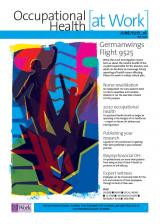June/July 2016 (vol. 13/1)
ContentsFeaturesNewsLegal
NewsResearch DigestResearch PlusCPD
Research Plus
Mind your back
Mindfulness-based stress reduction (MBSR) produced clinically meaningful improvements in functional limitations and self-reported pain in adults suffering chronic low-back pain (LBP) in this randomised controlled trial. A total of 342 people aged 20 to 70 with LBP for at least three months (mean 7.3 years) were randomised into: MBSR; cognitive behavioural therapy (CBT) specific for chronic pain; or usual care. Both MBSR and CBT were given in eight two-hour weekly sessions. Those receiving MBSR had significantly greater improvement (60%) in functionality measured on the Roland-Morris Disability Questionnaire at six months from the start of the study compared with those receiving usual care (44%) (p = 0.04), but not compared with the CBT group (58%). They were also more likely than the usual care group to show meaningful improvement – defined as at least 30% improvement compared with baseline scores (relative risk (RR) = 1.37; 95% confidence interval (CI) 1.06–1.77). Pain ‘bothersomeness’ (on a scale of 0–10) was also significantly improved at six months in the two treatment groups compared with normal care: MBSR 44% improvement; CBT 45%; usual care 27% (p = 0.01). The differences remained significant at one year.
Occupational Health at Work June/July 2016 (vol. 13/1) pp40



